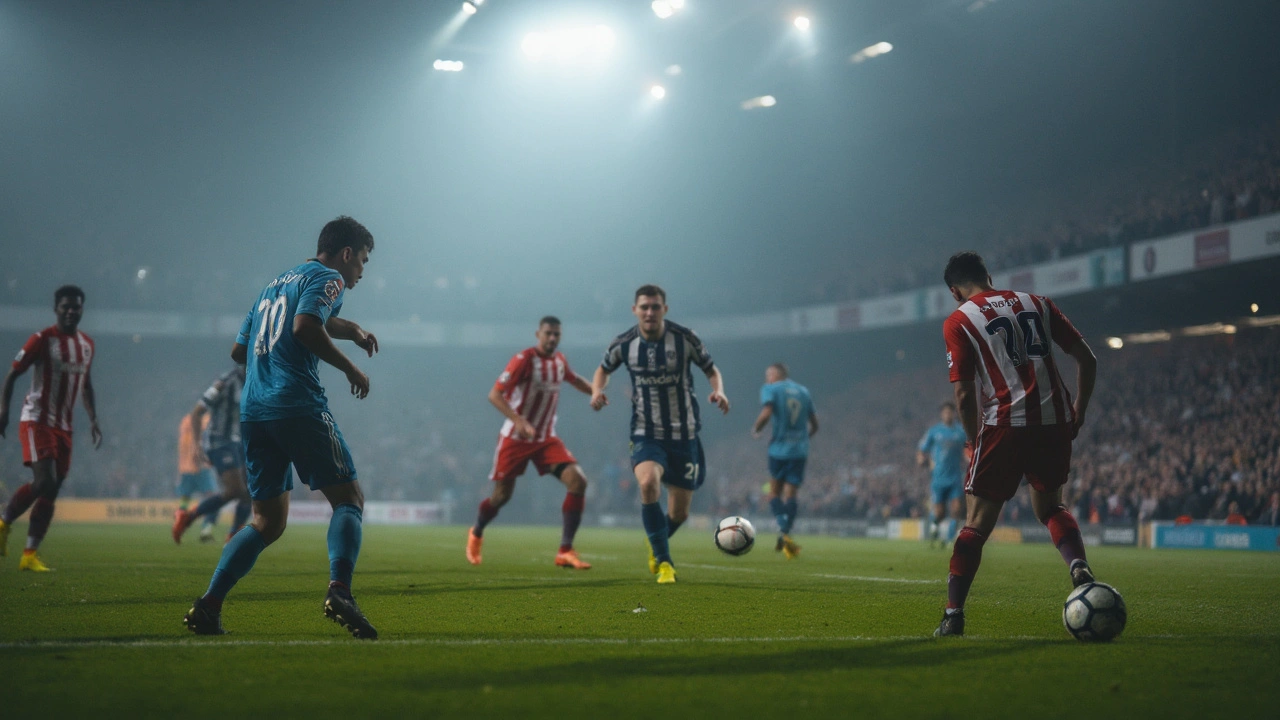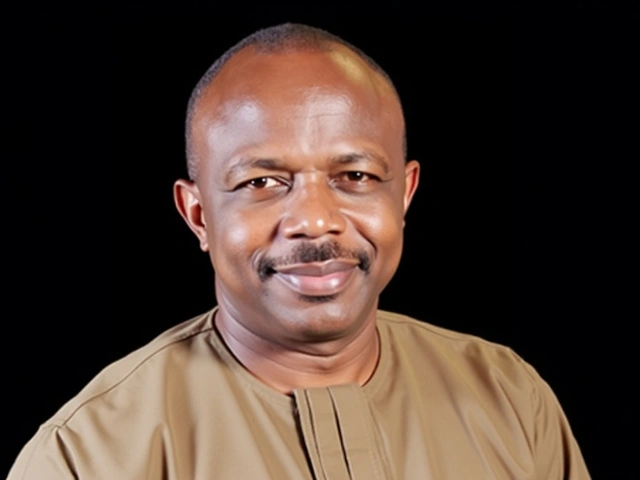The Disputed Incident
In a gripping FA Cup clash, Newcastle found themselves at the center of a heated debate when it appeared a critical goal might not have fully crossed the line against Birmingham City. Fans, players, and pundits alike were left in a whirlwind of uncertainty as the ball's trajectory wasn't clearly visible to everyone. This moment, now being replayed countless times, has fuelled discussions on whether the right decision was made on the pitch.
The match was already under intense scrutiny, but this incident has raised fresh questions about the reliability of decisions made without the support of conclusive technology. While Newcastle supporters believed the ball had indeed crossed the line, Birmingham City’s defense firmly disagreed. This discrepancy has sparked much chatter about how such situations should be handled in future matches.
Technology in Football: Friend or Foe?
Goal-line technology, introduced to curb such disputes, has generally been appreciated for bringing clarity to the game. However, this game reignited debates on its accuracy and application. Without a definitive video proof, opinions varied widely, and the absence of a unanimous decision highlighted the technology's potential flaws.
Critics argue that without perfect execution, these technologies may not serve their purpose as intended. While referees try to be impartial, human error combined with technology limitations can lead to contentious decisions. Some suggest a need for more comprehensive systems to help eliminate ambiguity completely.
As football evolves, the importance of accurate decision-making cannot be emphasized enough, especially with stakes as high as those in the FA Cup. This dispute between Newcastle and Birmingham is a reminder of the ongoing challenges faced by football authorities striving for fairness in the beautiful game. The conversation around enhancing current systems will likely grow more intense as the season progresses.




That was a slapdash call, no one even saw the ball cross.
We’re watching a game that should be decided by pure skill, yet a single ambiguous moment drags us into a philosophical debate about truth in sport.
When the ball hangs over the line like a question mark, the referee becomes a judge of reality, not just a custodian of the rules.
The crowd’s roar is a chorus of belief, each side convinced they saw a goal.
Technology was supposed to cut through that noise, delivering an irrefutable verdict.
But this incident shows the limits of even the most sophisticated sensors, reminding us that even machines can be blind at the crucial second.
It’s a reminder that football’s beauty lies in its human element, the imperfection that fuels endless discussion.
One could argue that we need a stricter standard, perhaps a higher resolution camera on every goal line.
Or we could accept that some moments will remain in the realm of myth, stories that fans retell for years.
Either way, the governing bodies need to balance the cost of tech upgrades with the desire for absolute certainty.
Fans deserve to know what happened without wild speculation, yet they also thrive on the drama of the unknown.
The controversy also highlights the psychological impact on players, who may feel cheated or vindicated based on a split‑second decision.
It’s a mental game as much as a physical one, and that split can affect confidence for weeks.
From a broader view, the incident could spark a wave of reforms, pushing leagues toward unified standards rather than patchwork solutions.
We may see a future where every stadium is equipped with a universal, real‑time verification system that leaves no room for doubt.
Until then, we keep debating, replaying, and arguing – a tradition as old as the sport itself.
The replay clearly shows the ball hovering just above the line, making it a tough call for any human eye.
Even with goal‑line tech, there are moments where the data isn’t conclusive enough to satisfy everyone.
Both sets of fans have valid points, and the referee did the best they could under pressure.
It’s a reminder that no system is perfect, but we keep striving for improvement.
i think the ref did a decent job, but woud've been nice to have a clear oooootcome, tho.
From a coaching perspective, the uncertainty around that decision can disrupt a team's rhythm.
Players need clear feedback to adjust tactics mid‑game, and a disputed call stalls that flow.
While technology aims to clarify, its occasional gray zones can lead to more analysis than resolution.
It’s essential for governing bodies to refine the protocols so that the game’s momentum isn’t compromised.
Yo, that's the truth! Let's keep the hype alive and push for even better tech – we deserve crystal‑clear calls every time!
Wow!!! This whole thing is just wild!!!! I mean, can you believe we’re still arguing about a ball that might've barely kissed the line??? It's crazy!!!
Honestly, the debate shows how passionate fans are; we need better tools, but also respect each other's view.
Another day, another broken decision; the league should stop pretending they’re flawless!!!
It was a close call and we can all see both sides.
Truth is, no system can capture every nuance of a split‑second event.
Exactly, and that’s why we should keep improving the tech, not dismiss it.
It’s a good reminder that football is a global language; everyone wants fairness, regardless of where they’re from.
We can all agree that a little more clarity would make the game even more enjoyable for fans everywhere.
Such incidents highlight the elegant imperfection of the sport, reminding us that even the most advanced systems have their limits.
Let’s use this as a catalyst for change! ⚽️🚀
We need to keep pushing for better accuracy while keeping the spirit of the game alive.
Absolutely, a balanced approach will benefit both players and fans.
It’s imperative that our national league leads the way in adopting uncompromising technology standards.